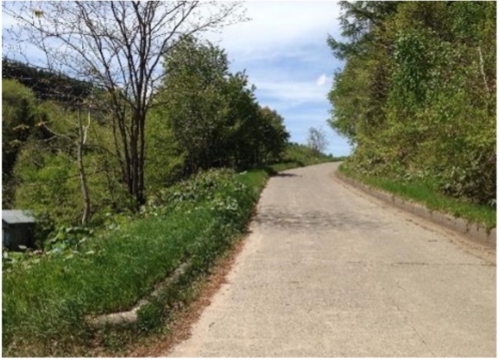![]()
 Soil Hardening Agent STEIN: Paving the Way for Improved Connectivity and Resilience in Developing Countries
Soil Hardening Agent STEIN: Paving the Way for Improved Connectivity and Resilience in Developing Countries
S
TEIN, a construction material developed in Japan in 1975, provides a valuable solution for building roads and irrigation facilities by compacting soil. Since its introduction, it has been used to construct unpaved roads in Japan, benefiting 1,500 sites. STEIN is made from a mixture of 5% STEIN elements, consisting of 27 types of inorganic substances and ordinary Portland cement. Notably, STEIN elements contain no harmful substances and are environmentally friendly.
Construction with STEIN involves mixing on-site soil with the material, followed by compaction and watering. The daily construction area achievable with STEIN depends on the available heavy machinery and soil quality, typically ranging from 700 m2 to 1,000 m2.
Utilising STEIN for surface layer construction with local soil in underdeveloped areas offers advantages such as reduced material inputs and initial costs, resulting in all-weather passable roads. It enhances the lives of people in areas with heavy rainy seasons. Furthermore, STEIN enables the construction of reservoirs and waterways that can hold rainwater and other water sources for irrigation.

Major Features and Advantages
STEIN has the following characteristics:
- Harden the existing soil at the site by mixing in STEIN at a ratio of only 10 to 15% compared to the weight of the soil
- Achieve a lower cost of construction compared to asphalt or reinforced concrete
- STEIN element is composed of 27 different types of inorganic materials and is free from environmental burden
- By adjusting the mixture rate, STEIN can be used for waterways, canals, and water ponds to prevent erosion and leakage of water from irrigation systems
- Construction can be done with standard heavy machinery, such as excavators, bulldozers, stabilisers, and compactors. No special equipment or machines are needed
- A STEIN road can open to traffic one day after construction, while irrigation systems can open three days after construction
- STEIN targets a strength of 30kg/cm2 after seven days, making it strong enough for the road to be passable by heavy trucks and lorry
- Running costs are low as there is no need for regular maintenance as there is little risk of rutting, deformation, cracking, or erosion caused by heat
- The durability of a STEIN road is at least ten years, at longest, 45 years
Technology Data
Possible applications
Improving rural roads and irrigation infrastructure holds the potential to establish all-weather roads, facilitating agricultural mechanisation and increased crop productivity. This development is also poised to decrease food losses attributed to crop damage during transit on unpaved roads, thereby boosting food self-sufficiency rates. In areas where rain-fed agriculture is practised, constructing canals for water distribution, coupled with reservoirs and dams for rainwater storage, can foster climate-resilient farming capable of adapting to evolving weather patterns influenced by climate change.
Furthermore, countries with underdeveloped road and irrigation systems face heightened disaster risks, including river and canal bursts and rainy-season landslides. Mere soil paving of soft ground, in contrast to asphalt or concrete, enhances accessibility and prevents villages from isolation during disasters. Moreover, STEIN can be employed for cost-effective and resilient irrigation infrastructure less prone to collapse during calamities.
In Japan, STEIN has been used for various purposes, including building spillways to prevent disasters from pond and canal overflow during heavy rain or typhoons, weed control to prevent unwanted growth, and dust prevention at sports facilities and schools.
Sales Record
In Japan, several construction companies specializing in school grounds, athletic facilities, national parks, factories, and parking lots have advocated STEIN adoption in proposals to local governments and property owners to secure contracts.
For international projects, SPEC deploys technical engineers to oversee the construction and trains local engineers to use STEIN to attain strength and adequate finishing effectively. In Kenya, SPEC collaborates with a Kenyan engineer with experience in over 20 construction sites who can independently supervise construction projects. SPEC aims to cultivate more engineers like this partner worldwide through demonstration constructions that utilise STEIN.
Company Data
Company data
| Name | SPEC COMPANY LIMITED |
| Address | 4-5-5 Shimotakaido Suginami Tokyo 168-0073 Japan |
| Website | http://spec-env.jp/en.html |
| Number of employees | 5 |
| International offices |
|
Contact person(s)
| Contact person(s) | Ms. Shiyo KAMIBAYASHI Phone: +81-80-6534-4321 Email: kamibayashi@spec-env.jp |
Modality of business transaction
Direct Investment
The STEIN element will be exported from Japan. Locally procurable cement, whose compatibility with the STEN element has been verified in advance, will serve as the raw material. A mixer can be locally manufactured or purchased for mixing powders with different specific gravities. By stationing personnel adept in quality control at the factory, SPEC will guarantee the final product’s quality, all while reducing the product’s selling price through local manufacturing. Target customers include public institutions such as ministries and government agencies, local general contractors, International Organisations, NGOs, agricultural cooperatives, large-scale farmers, and private land developers.
Export of product
Before committing direct investments, it is essential to conduct a demonstration construction to illustrate how potential customers STEIN operates. After verifying the local cement’s quality and the mixing plant’s specifications, SPEC will consider the direct investment mentioned above. In case there is a problem with procuring the raw material, SPEC will continuously ship the final product from Japan.
Attachments
Schematic illustration of the technology
|
|
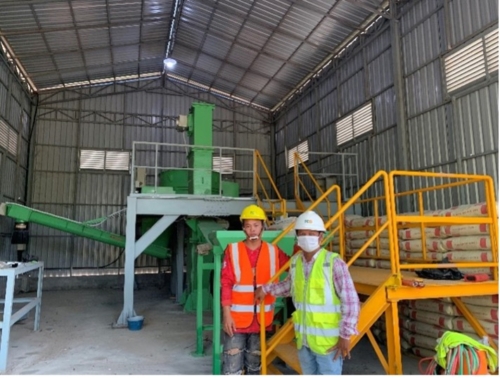 STEIN plant located in Cambodia |
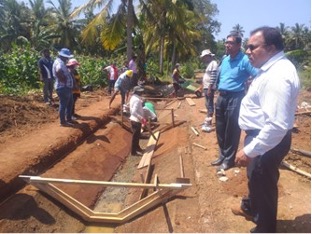 Waterways construction in Sri Lanka |
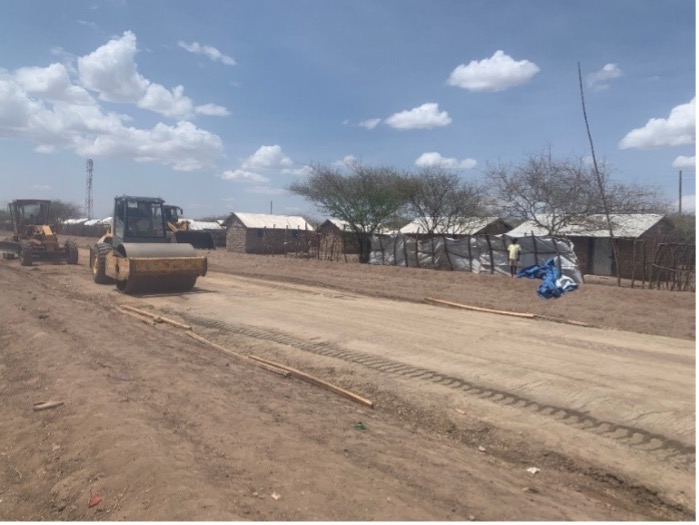 Road access improvement in a refugee camp in Kenya |
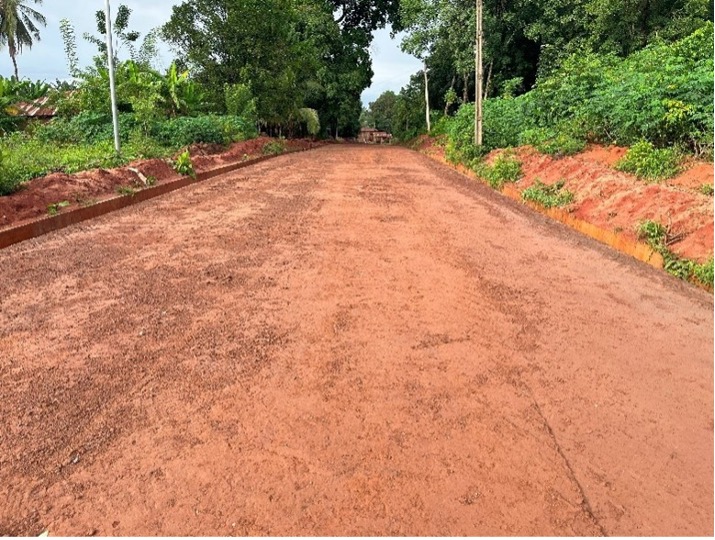 State road construction in Nigeria |
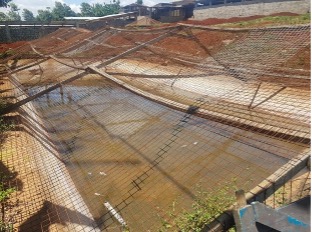 Water pond for fish nursery in Kenya |
Contact Person(s)
*Please mention that you saw UNIDO's website when making the first contact with the company.
Registered Category
- Agribusiness Technologies : Adaptation to climate change
- Disaster Management Technologies : Disaster prevention and preparedness


